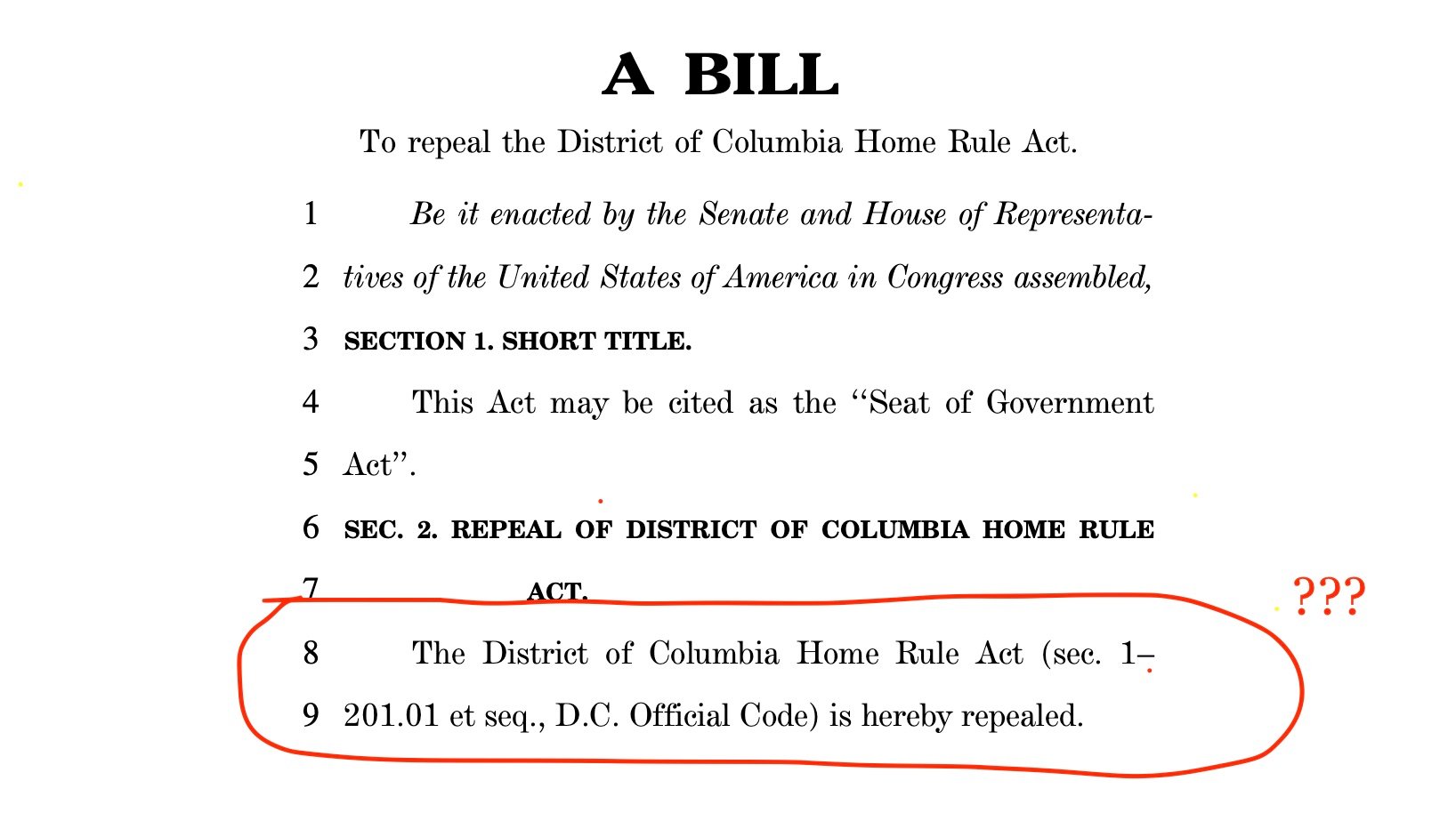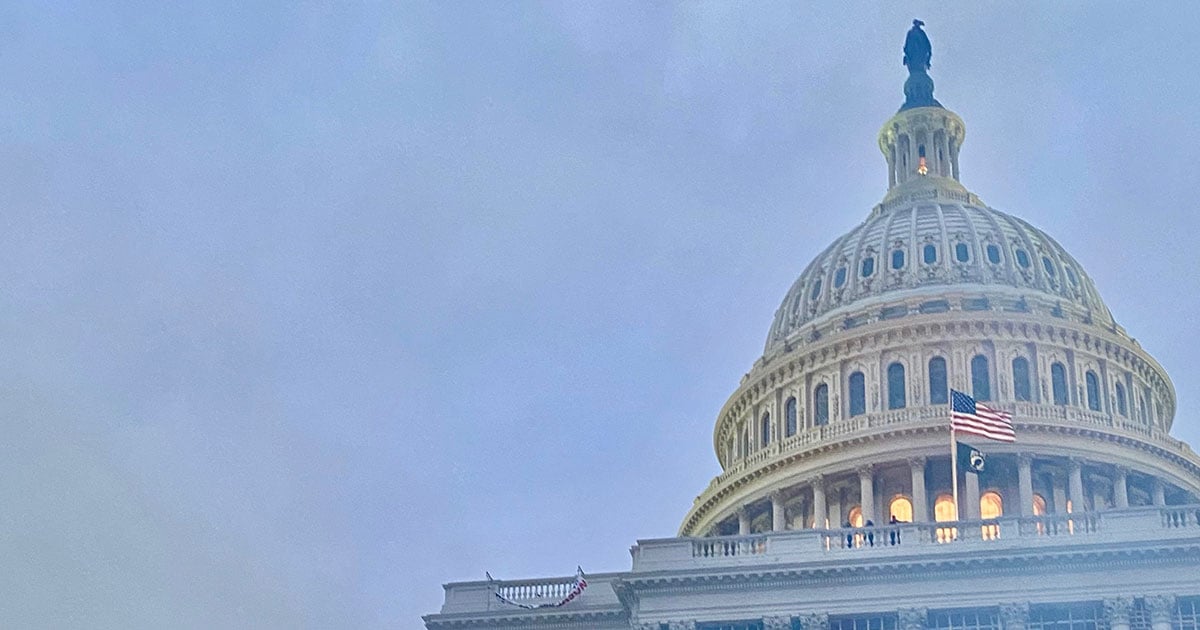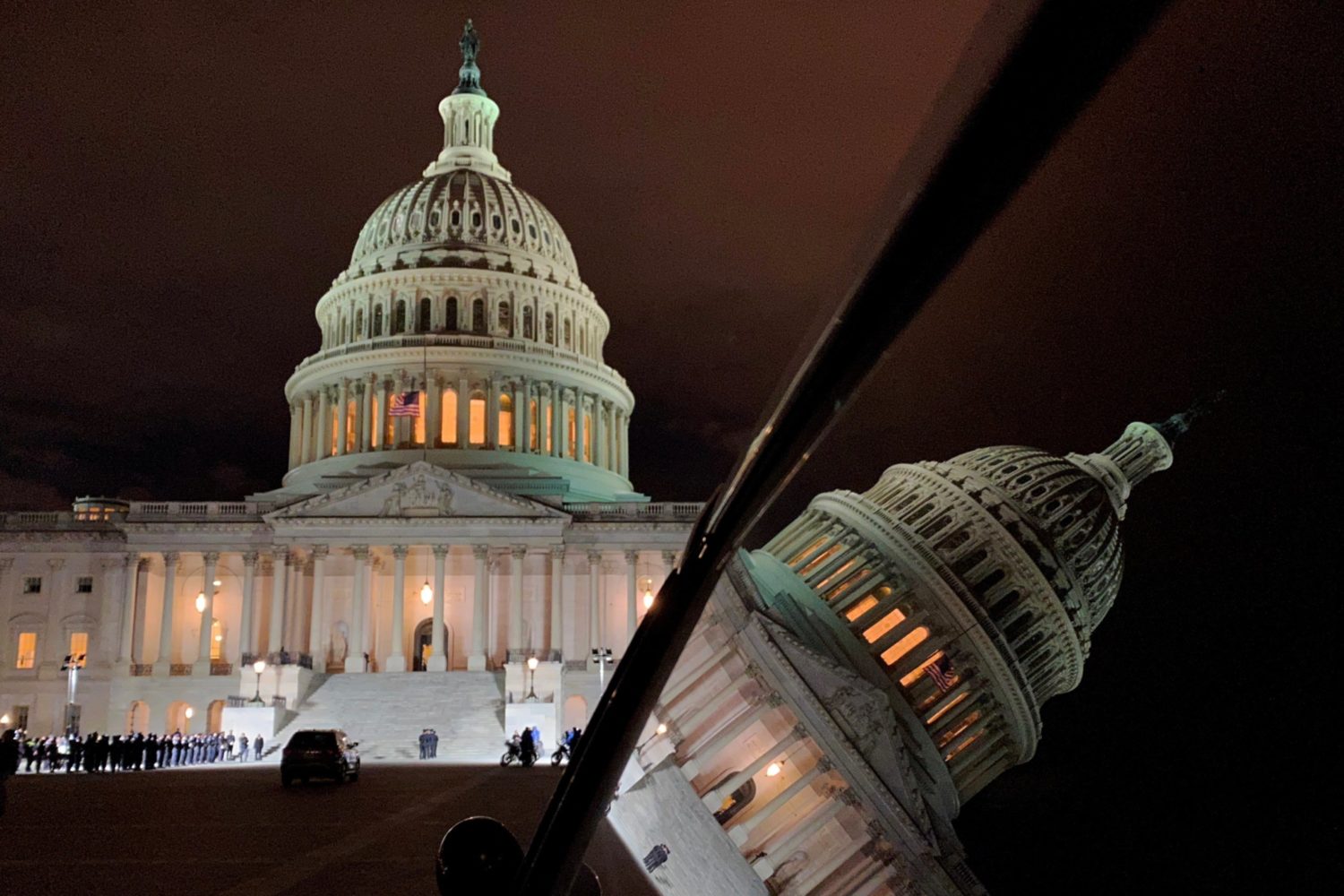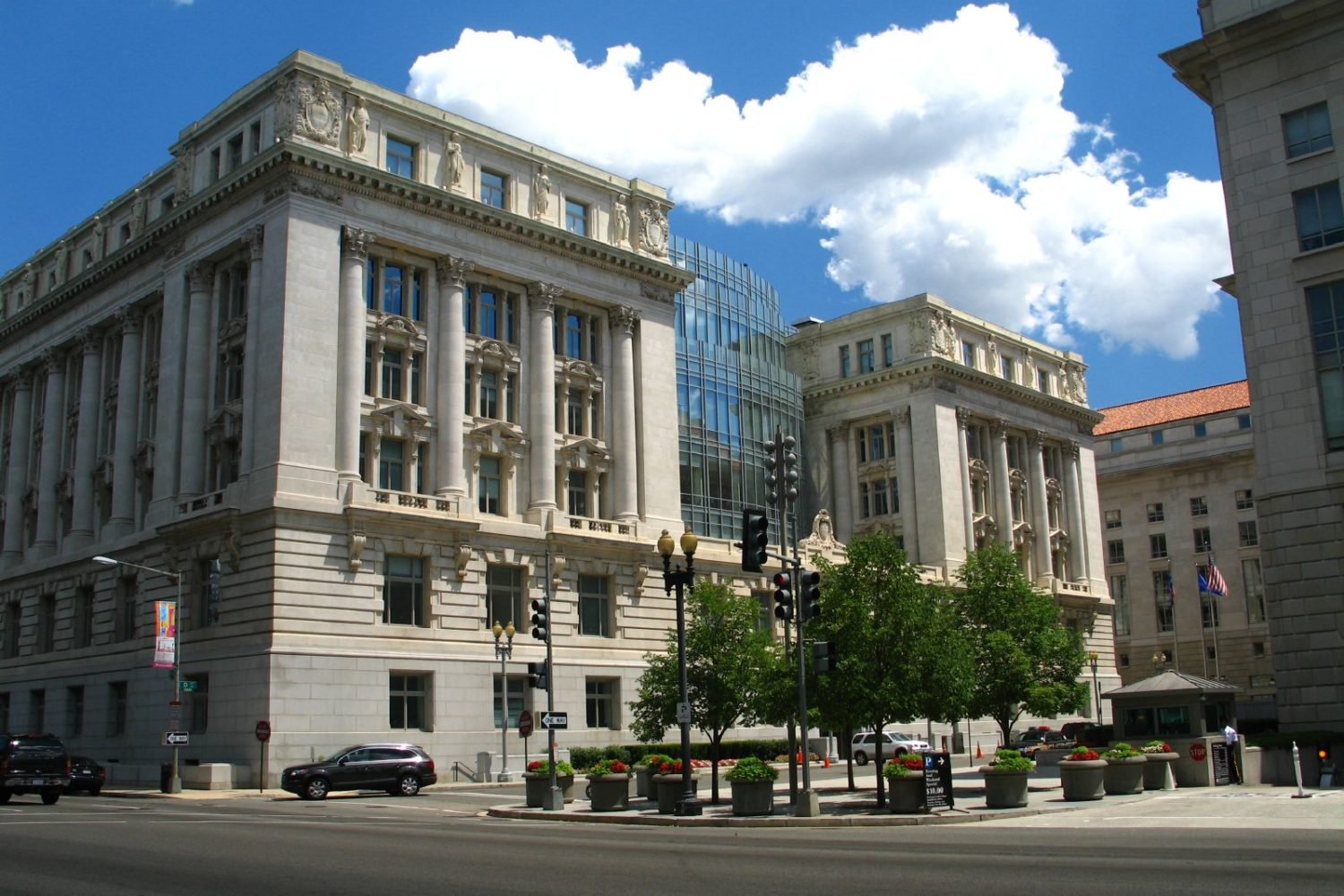It could strip the voting rights of 700,000 people, dismantle a 36,000-person government with a multi-billion dollar budget, put Florida and Wyoming senators in charge of your plumbing and trash—and it’s only one sentence long.
Earlier this month, three House Republicans introduced an attention-grabbing bill to Congress that would repeal DC Home Rule, a federal act that allows District residents to form a government. But the actual actionable portion of the legislation, which could undo a nearly half-century of local self-governance, is just 17 words long.
“I’ve seen other one-sentence bills, but they’re mostly renaming post offices or congratulating national champions for their season, that kind of stuff,” says Casey Burgat, a professor and legislative affairs program director at George Washington University. “The simplicity here is a red flag. There’s no intention of this actually becoming law,” he added.
Burgat calls this bill, which is unlikely to pass, a “message bill”—something not meant to be enacted or even voted on, but rather used by lawmakers to attract media coverage and earn points with their constituents. “This probably took five minutes of his staff and his time to actually introduce, and look at the attention that it’s getting for that time investment,” Burgat says.
The bill has spurred numerous news reports and been lambasted by local residents and elected officials. “The notion that Congress is ready to go back 50 years when it wasn’t running the city well then, is fantasy,” DC Council Chair Phil Mendelson told the Washington Post.
The three congresspeople who introduced the bill did not immediately return Washingtonian’s requests for comment. Rep. Andy Ogles (R-Tenn.), who led the effort, told the Washington Examiner last week that Congress had to take back control of the city because of spiking crime rates. “The Constitutional responsibility to keep our Nation’s capital safe for the people lies with Congress, not Mayor Bowser or the DC City Council,” he Tweeted.
However, the bill—which thanks to standard Congressional boilerplate formatting takes up an entire page, albeit with a fair amount of white space—does not include any language specifically addressing crime, nor any other tangible issues facing the city. Nor does it propose mechanisms for city governance in the absence of the current system.
“To repeal [home rule] would throw this all up in the air and basically force Congress to be the administration of DC laws,” Burgat says. “They’re not prepared to do that.”
Federal lawmakers have a history of injecting themselves into local self-governance. Most notably, Congress took control of DC’s finances with a five-member, president-appointed board in 1995 to untangle the city’s economic crisis. (DC took back the wheel in 2001 after balancing the budget). Recently, Congress passed a bipartisan resolution to reject the city’s revised criminal code; President Biden signed off on that decision, marking the first time in nearly three decades the national body overturned local legislation.
Notably, the above efforts were longer than one sentence.
Why would Ogles and Co. introduce an unserious “message bill” with such potentially serious consequences? Steven Taylor, a professor of urban politics at American University, says Republicans are prone to using DC as a political piñata, in part because the city has historically been run by Democratic politicians and has had a majority Black population.
The Home Rule bill is also not Ogles’ first foray into the city’s affairs. Earlier this summer, he proposed a bill that would rename the area around the Chinese Embassy “Tiananmen Square Memorial Boulevard,” a nod to the 1989 protests for democracy and economic reforms in China that were violently quelled by the government.
A former county mayor who reportedly has greatly exaggerated his background and experience as an economist, a nationally recognized expert in tax policy and health care, a trained police officer, and an expert in international sex crimes—and also has reportedly inflated his pervious business experience—Ogles has introduced one piece of federal legislation specific to his home state since his election to Congress in 2022.
The Home Rule bill, which is not yet available online—probably due to the August recess—has been referred to House committees. While it almost certainly will not pass in its current form, Taylor says it should not be ignored. “You know, the old saying, ‘This is not a threat, it’s a promise?” he says. “I think [the bill is] a harbinger of things to come.”



















